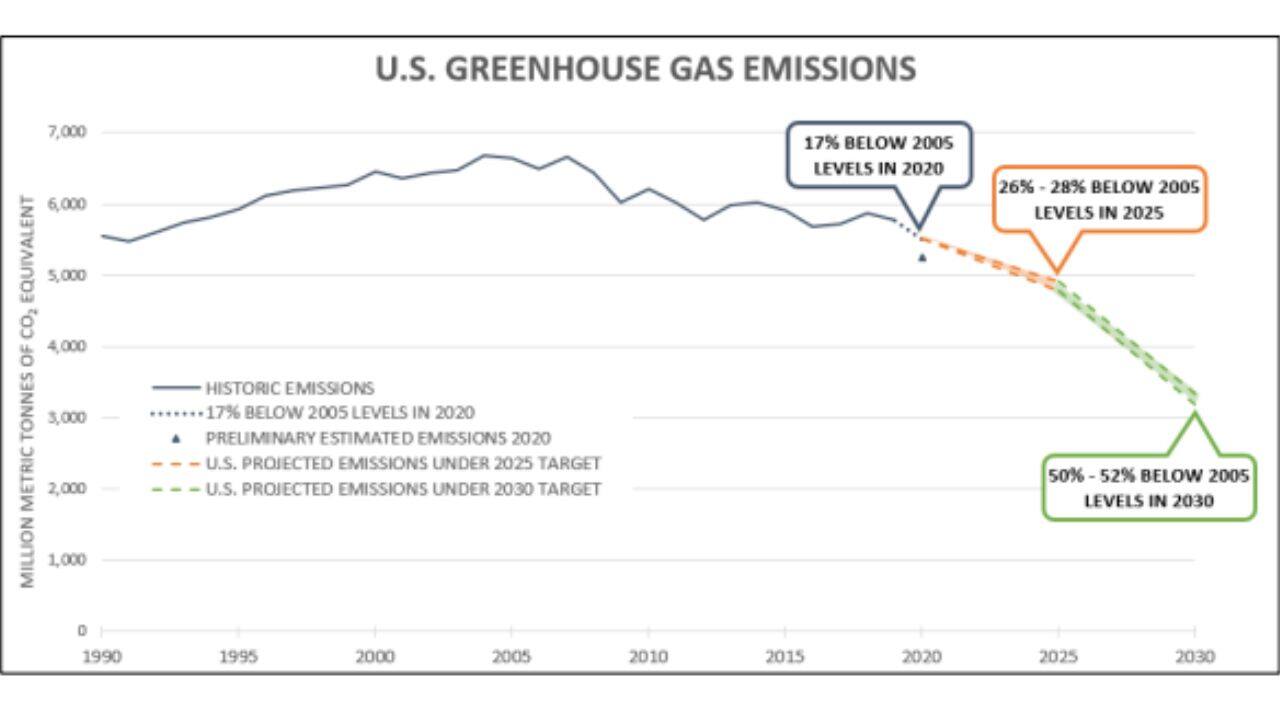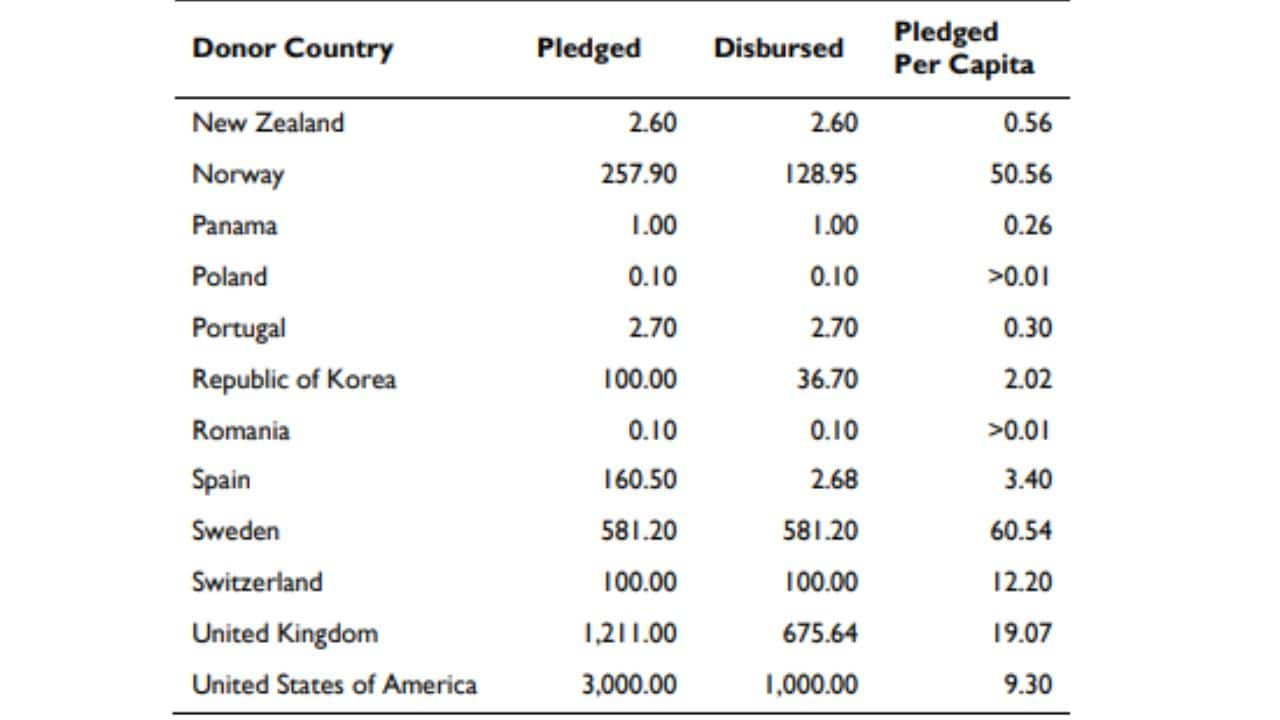



US President Donald Trump signed an executive order on Monday to withdraw the US from the Paris climate agreement, just hours after taking office. This marks the second time Trump has initiated the withdrawal, having first done so in 2017 during his previous term. President Biden rejoined the accord after taking office in 2021.
Trump’s executive order stated that the US would begin the process of withdrawing from the international climate change treaty, which was endorsed by nearly 200 countries, 'immediately'.
The order also stated that the agreement “does not align with our country’s values or our contributions toward achieving economic and environmental goals.”
Trump has previously referred to climate change as a "hoax" and selected oil industry executives and climate skeptics for key positions in his cabinet.
Hours after taking office as the 47th President of United States, Trump announced a series of executive orders and policies designed to increase oil and gas production, roll back environmental protections, withdraw from the Paris climate accord, and undo environmental justice initiatives implemented by former President Joe Biden.
Some of the key actions include declaring a 'National Energy Emergency' to combat inflation and lower the cost of living. He pledged to “use all necessary resources to build critical infrastructure,” which could grant the White House increased power to boost fossil fuel production.
“We will have the largest amount of oil and gas of any country on Earth, and we are going to use it,” Trump said during his inaugural address. “We are going to drill, baby, drill.”
“We will be a rich nation again,” he said, standing inside the Capitol Rotunda, “and it is that liquid gold under our feet that will help.”
He also signed an executive order aimed at promoting energy exploration and production on federal lands and waters, including the Outer Continental Shelf, and another order to accelerate permitting and leasing in Alaska, particularly within the Arctic National Wildlife Refuge.
Trump also moved to eliminate “the electric vehicle mandate,” fulfilling his campaign pledge to support autoworkers.
Trump’s decisions come at a critical moment as the world faces the ongoing climate crisis, highlighted by the devastating wildfires in Los Angeles.
In 2024, which has been confirmed as the hottest year on record and the first to see average global temperatures exceed 1.5°C above pre-industrial levels, the World Meteorological Organization cautioned that the world is "more likely than not" to exceed the Paris Agreement's 1.5°C global warming limit by 2027. Meanwhile, the UN Environment Programme stated that current emissions reduction commitments are leading us toward a temperature rise of 2.6-3.1°C by the end of the century.
According to a report by Firstpost, the US is already off track to meet its 2030 climate targets. Trump's plan to withdraw from the Paris Agreement has significantly undermined the Biden administration's commitment to reducing climate pollution by up to 66 percent by 2035.
 Source: United States NDC
Source: United States NDC
As the second-largest carbon emitter after China, the US plays a major role in driving up global temperatures, according to Firstpost.
The New York Times reported that US efforts to reduce greenhouse gas emissions were already stagnating in 2024, and with Trump back in office, it appears even less likely that the country will achieve its ambitious targets for further cuts. Estimates from a study conducted by the Rhodium Group show that emissions fell by just 0.2 percent last year compared to the previous year.
Despite the ongoing rapid growth of solar and wind power driven by the previous administration’s key climate legislation, the Inflation Reduction Act, emissions remained relatively unchanged last year. This was due to a nationwide surge in electricity demand, which led to an increase in natural gas use by power plants.
The minimal decline in emissions further distances the US from achieving President Biden’s goal, announced last month under the Paris Agreement, to reduce greenhouse gases by 61 percent below 2005 levels by 2030. Scientists argue that all major economies must significantly cut their emissions this decade to limit global warming to manageable levels.
If Trump were to reverse most of Biden’s climate policies, US emissions could drop by only 24 to 40 percent below 2005 levels by 2030, according to the Rhodium Group study.
What is the Paris Climate Agreement?
The Paris Agreement, adopted in 2015 at COP21 (the 21st Conference of the Parties) in Paris, brought together 194 parties, including 193 countries and the European Union (EU), with a shared goal of limiting global warming to 1.5 degrees Celsius above pre-industrial levels.
The agreement set a target to keep global warming well below 2 degrees Celsius, recognizing that the impacts of climate change would be far more severe if temperatures rise close to or beyond this threshold.
Under the agreement, nearly 200 nations committed to reducing greenhouse gas emissions, which are the primary cause of global warming.
They also pledged to reach "net zero," meaning a balance between the emissions they produce and the amount of greenhouse gases they remove from the atmosphere.
The Paris Agreement operates on a five-year cycle, where countries are expected to submit updated climate action plans, known as Nationally Determined Contributions (NDCs), with increasingly ambitious goals.
The Paris Agreement emphasizes that developed countries should take the lead in providing financial support to less wealthy and more vulnerable nations. It also encourages voluntary contributions from other parties.
It came into force on November 4, 2016. It did not specifically spell out how countries should achieve the treaty’s goals and each country was responsible for formulating its own plans to meet the target.
Impact on global climate targets
Although the Paris Agreement will continue to function without the United States — the world’s second-largest emitter of greenhouse gases — there are concerns that this could reduce the pressure on other countries to act. This concern follows the record-breaking global temperatures in the past year, with scientists warning that countries must intensify their efforts to reduce emissions in order to meet the global climate targets.
In November 2024, just before Trump's election win, UN Secretary-General António Guterres expressed concern about the potential impact of a Trump presidency on global climate targets and policies. He warned that if the US were to exit the Paris Agreement again, it could seriously hinder progress on the international treaty.
 Source: Green Climate Fund, “Status of Pledges for GCF's Initial Resource Mobilization (IRM),” as of June 2,2017. (In millions of U.S. $ equivalent)
Source: Green Climate Fund, “Status of Pledges for GCF's Initial Resource Mobilization (IRM),” as of June 2,2017. (In millions of U.S. $ equivalent)
A key component of the Paris Agreement is the financial support pledged by developed nations to assist developing countries in both mitigating and adapting to climate change. The US had committed $3 billion to the Green Climate Fund (GCF), which helps finance climate action in vulnerable countries. This was part of a broader $100 billion annual commitment by developed nations, aimed at supporting global climate efforts by 2020.
However, Trump’s withdrawal from the Paris Agreement has raised significant concerns regarding the future of this financial commitment. The potential loss of US financial support to the GCF could lead to significant shortfalls in the funding available to help vulnerable nations, making it harder for them to implement effective climate policies. This loss would also undermine the trust and cooperation needed for global efforts to combat climate change, with developing nations depending heavily on financial assistance to meet their climate goals.
Guterres warned, "The Paris agreement can survive, but people sometimes can lose important organs or lose the legs and survive. But we don’t want a crippled Paris agreement. We want a real Paris agreement."
The UN Secretary General also noted that it is crucial for the United States to stay in the Paris Agreement, and even more importantly, for the US to implement the policies needed to ensure that the 1.5-degree target remains within reach.
Discover the latest Business News, Sensex, and Nifty updates. Obtain Personal Finance insights, tax queries, and expert opinions on Moneycontrol or download the Moneycontrol App to stay updated!
Find the best of Al News in one place, specially curated for you every weekend.
Stay on top of the latest tech trends and biggest startup news.